Showing Your Mettle
- Heather Lyon

- Mar 2, 2022
- 5 min read
Hello,
Though I played volleyball in high school and now consider myself to be a runner, I would not by any stretch call myself athletic. When I tell you I faked an asthma attack in high school to get out of running the mile for the President’s Physical Fitness Test, I am neither exaggerating nor lying. That is a true fact. When we would play soccer in PE, if I had to be on the field, I would do everything I could to be positioned as the fullback and just stand there talking to the goalie (if I thought I had a chance to catch the ball, I would have wanted to be the goalie since they don’t have to run at all). I had no idea until watching my boys play soccer the fullbacks ran the field.
Despite my lack of innate athleticism or much of a desire for most of my life to grow in that area, I have to say, I really enjoy the Olympics. I’m not sure when this interest started. My first memory related to the Olympics came from watching the 1984 TV movie, Nadia about Nadia Comaneci—the Romanian gymnast who was the first gymnast to receive a perfect score of 10.0 at the Olympics. God did I want to do what she did! I also remember watching the rivalry and drama between Tonya Harding and Nancy Kerrigan in the early nineties. Nancy was so beautiful and talented and seeing her make it to the Olympics after being attacked was miraculous. Fast forward to the 1996 Summer Olympics when Kerry Strug injured her ankle on her first vault—but the team needed her to land her vault for the team to get the gold medal. Unbelievably, she did it. She stuck the landing on one foot! The opening ceremonies for the 2008 Summer Olympics in China were breathtaking to me. In 2016, I watched in awe as Michael Phelps became the most decorated Olympian of all time. I have a t-shirt commemorating the fact the 2020 games were held in 2021 (since Olympics are held in even years). Anyway, you get the gist. When the Olympics are on, I’m most likely watching them.
I used to watch them for the pageantry and the athleticism. Certainly, that’s a good reason to watch and these features still hold my attention. However, now I watch with a different lens. Specifically, while I am always blown away by how talented each and every athlete is, I am now blown away by how human each and every athlete is. Their humanity manifests in jealousy (like Tanya Harding with Nancy Kerrigan) and doubt (like in 2021 when Simone Biles chose not to compete due to concerns about her mental health impacting her physical health).
As a runner, I know how difficult running distances can be (I’ve gotten up to 10 miles and would love to get to a half marathon). As I watched the 2021 female marathoners, I saw three behaviors that will stick with me forever—and not because I am also a runner.
1. Olympians Are Just People: When I thought about the runners, I thought they were somehow super-human. I thought running for them was easy. I thought they would not be phased by the conditions. I was wrong. As it happens, the 2021 women’s marathon occurred during such extreme weather conditions of heat and humidity that the race was moved up an hour to try “to further reduce the runners’ exposure to potentially dangerous conditions. Nonetheless, at the start, the temperature was 78 degrees, with 83 percent humidity and bright sun, only slightly more favorable than conditions in Tokyo at the time. The temperature climbed to 84 degrees by the time the medalists finished.”
As I watched the race, I saw these women running from shadow to shadow so they would lessen their exposure to the sun. “What are they doing?!” I thought. “This is lengthening their distance.” Yet the commentators spoke about how painful each additional stride was for the runners and how their bodies were screaming for them to stop. “I know that feeling,” I thought now. “I can relate! They are not super-human. They are human, like me.” This is not to say I am an Olympian; it’s to say Olympians are just people.

2. Olympians Are Not Perfect: The next big surprise for me was when I saw one of the runners walking. “What? One of the best runners in the world is having trouble and has changed to a walk?” “Ruth Chepngetich of Kenya, the 2019 world champion who set the half marathon world record in April, fell off the lead pack. She wound up dropping out after about 20 miles.” The woman who set the half marathon world record just months before had to drop out of the competition with just 6 miles to go—after running 20 miles. In fact, “more than a dozen runners did not finish.”

3. Take Your Best Shot: Finally, out of nowhere, American Molly Seidel won the Bronze medal. I say “out of nowhere” not because Seidel had some sort of sprint at the end where she pulled ahead of other runners, but because this was “just the third marathon Seidel, 27, has ever run.” You read that right. It was just her THIRD race. Seidel said I, “was just trying to stick my nose where it didn’t belong and just kind of get after it. I mean, Olympics only happens once every four years. You might as well take your shot.” I loved her chutzpah and moxie. Think of all of the people who were not just told “no,” but told themselves “no.” I love that Seidel wasn’t one of those people!
Speaking for myself, when I look at people who are the best in their fields, I look at them with awe. In truth, part of me thinks the people who are the best in the field are somehow immune to the challenges “regular” people face like doubt, lack of motivation, and injuries. That’s simply not true. Ruth Chepngetich set the world record for female marathoners and she couldn’t finish the 2021 Olympic marathon. The people who are the best are just as susceptible to everything that anyone else is. So if that’s the case, then when we non-Olympians fail or struggle or get back up and try again (and again and again), we are doing the work of Olympians. In other words, let’s stop beating ourselves up when things don’t work out as we planned or wanted them to, and let’s get up again and take our next best shot! When you think about it, you realize that even though there are three Olympians for every event that get a medal, there are countless others who do not. That means most Olympians walk away empty-handed. Being an Olympian doesn't mean getting a medal, it means showing your mettle.
~Heather
P.S. My Catch of the Week this week is the quote by Martin Niemoller, who following World War II said the following:

I can't help but think about this quote as we watch what is happening in Ukraine right now. Please do something. There are numerous charities that you can support to help show the Ukrainians that they are not alone or forgotten. Support can take the form of donations of time, talents, or treasure. Here is a list of charities in case you'd like some ideas or suggestions. We cannot sit by idly because doing nothing for others means there may not be others to support us should we need it one day.




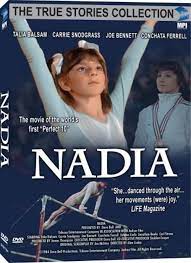
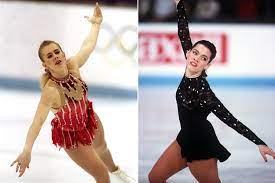
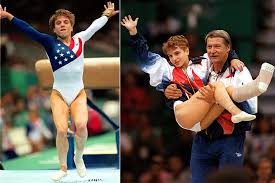
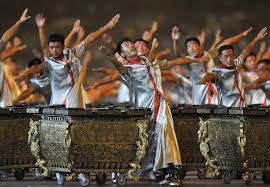
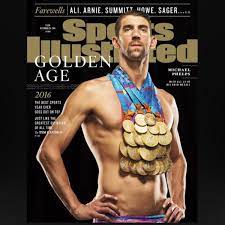





Prayers to those in Ukraine fighting for what is theirs